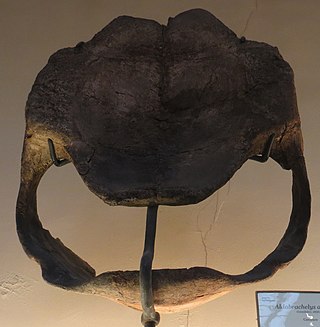Devavarman may refer to:
- Devavarman (Maurya) (r. c. 202 – c. 195 BC), Indian emperor
- Devavarman (Champa) (r. 510 – c. 526 AD), Southeast Asian ruler
- Devavarman (Chandela dynasty) (r. c. 1050 – c. 1060 AD), Indian king
Devavarman may refer to:

Kannada, previously also known as Canarese, is a Dravidian language spoken predominantly by the people of Karnataka in southwestern India, with minorities in all neighbouring states. It has around 44 million native speakers, and is additionally a second or third language for around 15 million non-native speakers in Karnataka.

The Sena dynasty was a Hindu dynasty during the early medieval period on the Indian subcontinent, that ruled from Bengal through the 11th and 12th centuries. The empire at its peak covered much of the north-eastern region of the Indian subcontinent. The rulers of the Sena Dynasty traced their origin to the south Indian region of Karnataka.
Prithviraj, Pruthviraj or Prithvi Raj may refer to:

Arabhi or Aarabhi is a ragam in Carnatic music. It is a Janya raga, whose Melakarta raga is Shankarabharanam, 29th in the 72 Melakarta raga system. It is a combination of the pentatonic scale Shuddha Saveri and the sampurna raga scale Shankarabharanam.

Sujatha Mohan is an Indian playback singer who is popular for singing in Malayalam, Tamil and Telugu movies. She has also sung for Kannada, Badaga, Hindi and Marathi and more languages movies. As of 2021, she had recorded more than 10,000 songs.

Devagandhari is a raga in Indian classical music. In carnatic classical music, Devagandhari is a janya raga, whose melakarta raga is Shankarabharanam, 29th in the 72 Melakarta raga system. This is not to be confused with Karnataka Devagandhari, which is a janya of Kharaharapriya similar to Abheri.
Aradhana or Aaradhana is a Sanskrit word meaning an act of glorifying God or worship. It may refer to:
Kakkar or Kakar is an Indian surname originating with the founder of a Bahri clan. It is associated with the Khatri caste of Hindus, Sikhs and Muslims. Whilst the Dictionary of American Family Names states that the etymology derives from the Sanskrit word karalagni, used in reference to the Sun and translating as "one who holds fire in its hands", the historians R. C. Dogra and Baij Nath Puri, believe it is derived from the word Karkar, meaning strong or powerful.

Aldabrachelys abrupta, the abrupt giant tortoise, is an extinct species of giant tortoise that was endemic to Madagascar.

Lâm Ấp was a kingdom located in central Vietnam that existed from around 192 AD to 629 AD in what is today central Vietnam, and was one of the earliest recorded Champa kingdoms. The name Linyi however had been employed by official Chinese histories from 192 to even 758 AD to describe a particular early Champa kingdom located north of the Hải Vân Pass. The ruins of its capital, the ancient city of Kandapurpura is now located in Long Tho Hill, 3 kilometers to the west of the city of Huế.
Manjunath or Manjunatha is another name for the Hindu deity Shiva. It may also refer to:
Vijay Singh is a Fijian professional golfer.
Ajit, Ajith or Ajeet may refer to:
Vijayapala was a king of the Chandela dynasty of India. He ruled in the Jejakabhukti region.
Devavarman was a king of the Chandela dynasty of India. He ruled the Jejakabhukti region.
Kirttivarman, also known as Kīrtivarman, was a king of the Chandela dynasty of India. He ruled the Jejakabhukti region. He revived the Chandela power by defeating the Kalachuri king Lakshmi-Karna.
Hammira is a Sanskritized form the Arabic title Amir, adopted as a given name by the early medieval Indian rulers. It may refer to:
Madanapala may refer to:
Lakshmikarna, also known as Karna, was a ruler of the Kalachuri dynasty of Tripuri in central India. His kingdom was centered around the Chedi or Dahala region in present-day Madhya Pradesh.

Xitu was the Chinese designation for a historical region or a Chamic polity or kingdom that was first mentioned in the mid of fifth century AD, is believed to be one of the predecessors of Champa Kingdom. It has been proposed to be located in the Thu Bồn River Valley, present-day Quảng Nam Province, Central Vietnam.